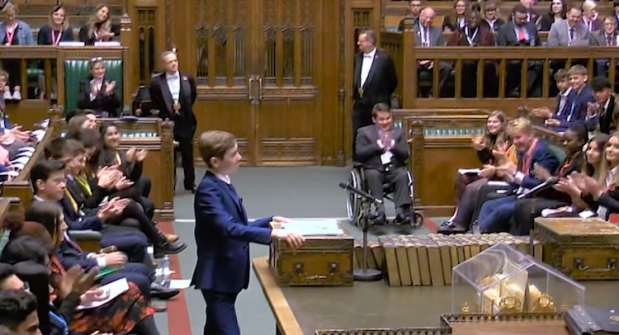There has been an emotional response to the case of Shamima Begum, quite rightly. It is not clear to me that lawyers are better equipped than politicians to navigate such emotions, but sadly we live in an age which is increasingly demanding legal answers to political questions. What is perhaps surprising is that, with uncharacteristic vigour, our Court of Appeal have jumped headfirst into the maelstrom.
The Special Immigration Appeals Commission (SIAC) – created to consider cases like these – found against Ms Begum in February, which seemed largely uncontroversial at the time.
But the latest decision was made by three Court of Appeal Judges, who turned their minds to two questions: whether Ms Begum could fairly participate in her hearing from the camp in Syria, and whether the court ought to actually find in her favour right now and not bother asking SIAC at all.
On the first question, the court found Ms Begum must be in the UK to have her hearing. That is logically unsustainable.
But the second question was the most bizarrely handled. In paragraph 128, the court goes well beyond what might be considered normal practice to tell SIAC what it would do if it were SIAC (despite errr … not being SIAC). Saying, ‘It follows that I consider that Ms Begum’s claim for judicial review of the decision of SIAC in relation to the Articles 2/3 issue succeeds’. Pause for a moment and recall that the first concern was alleged to be ‘fairness’. Fairness should mean both parties get a fair hearing. How then can it be fair to the government in the forthcoming SIAC hearing that the Court of Appeal has already prejudged the issue?
The justification for prejudging this decision is ‘risk’. In effect it concluded that, because Syria, Iraq and Bangladesh might be a risky place to live, Ms Begum should live in Britain. It is not immediately clear why the default assumption is that Britain is safe, or why these judges should usurp SIAC’s power to decide the question.
The danger of politicising justice is that it becomes tribal. In 532AD huge riots (now forgotten) seriously shook the very basis of civilisation. One side picked the blue team, one picked the green and all hell broke loose. No one cares about blue or green now, and in turn, the tribalism of today will one day be seen as equally silly. Sadly, analysis of this case is mired in that same silly tribalism.
What then of the first question: freedom to participate in her hearing? The court dealt with this tersely in paragraph 92 where they seemed to accept as rote that Ms Begum cannot meaningfully participate in her hearing, unless she actually comes to London.
Perhaps only a year ago I may have nodded along. But for the last four months, almost every single court hearing (important fights over money, children or liberty) has not happened for anyone in person. Those lucky enough to be using the better funded courts have had video link – most normal people have had a simple telephone hearing. Almost no one, celebrities aside, have met their lawyer in person.
In that world, it is simply irrational for the Court of Appeal to find that Ms Begum must physically come to London in order to fairly access justice. No one else has.
The way they handled the second question is, I think, eccentric at best. But the easy win now for the government is for the Supreme Court to rationally conclude that Ms Begum is no different from any other litigant – she can use the telephone and video call. To fly here, she would need the help of our consulate in Erbil – let her use a nice room there to access her lawyers the same way everyone else now does instead.
That way she is permitted the justice we all deserve, and no one need prejudge what SIAC may or may not find.
Got something to add? Join the discussion and comment below.
Get 10 issues for just $10
Subscribe to The Spectator Australia today for the next 10 magazine issues, plus full online access, for just $10.




















Comments
Don't miss out
Join the conversation with other Spectator Australia readers. Subscribe to leave a comment.
SUBSCRIBEAlready a subscriber? Log in